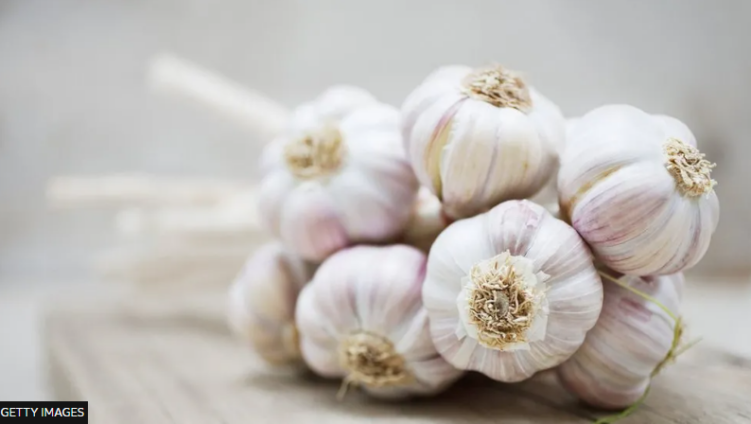A US senator has called for a government investigation into the impact on national security of garlic imports from China.
Republican Senator Rick Scott has written to the commerce secretary, claiming Chinese garlic is unsafe, citing unsanitary production methods.
China is the world's biggest exporter of fresh and chilled garlic and the US is a major consumer.
But the trade has been controversial for many years.
The US has accused China of "dumping" garlic on to the market at below-cost price.
Since the mid-1990s it has levied heavy tariffs or taxes on Chinese imports in order to prevent US producers from being priced out of the market.
In 2019, during the Trump administration, these tariffs were increased.
In his letter Senator Scott refers to these existing concerns. But he goes on to highlight "a severe public health concern over the quality and safety of garlic grown in foreign countries - most notably, garlic grown in Communist China".
He refers to practices which, he says, have been "well documented" in online videos, cooking blogs and documentaries, including growing garlic in sewage.
He has called for the Department of Commerce to take action, under a law which allows investigations into the impact of specific imports on the security of the US.
Senator Scott also goes into much detail about the different types of garlic that should be looked into: "All grades of garlic, whole or separated into cloves, whether or not peeled, chilled, fresh, frozen, provisionally preserved or packed in water or other neutral substance."
He argues: "Food safety and security is an existential emergency that poses grave threats to our national security, public health, and economic prosperity."
The Office for Science and Society at McGill University in Quebec, which attempts to popularise and explain scientific issues, says there is "no evidence" that sewage is used as a fertiliser for growing garlic in China.
"In any case, there is no problem with this," an article published by the university in 2017 says.
"Human waste is as effective a fertilizer as is animal waste. Spreading human sewage on fields that grow crops doesn't sound appealing, but it is safer than you might think."
Latest Stories
-
Administrative fees at ports shouldn’t be priced in dollars – Institute of Freight Forwarders
22 minutes -
Baba Rahman spotted in Black Stars camp ahead of Unity Cup
41 minutes -
Omar Sterling is my all-time favourite Ghanaian rapper – Gyakie
43 minutes -
Mohammed Kudus scores to seal 3-1 win for West Ham against Ipswich Town
1 hour -
Ghana’s exports hit $9.3bn in April 2025 – BoG Report
1 hour -
“We were never taught to talk about it” – Jahara Osman pushes for national mental health awakening
1 hour -
Playback: The Probe discussed Cedi appreciation
1 hour -
‘Mental health is the foundation of all health’ – Jahara Osman rallies nation ahead of major forum
1 hour -
Americans remember George Floyd on fifth anniversary of death
2 hours -
School bus attack caught in tensions between Pakistan and India
2 hours -
Chelsea win seals Champions League place as Forest miss out
2 hours -
Father of nine children killed by Israeli strike still in critical condition
2 hours -
Villa complain to Premier League after ‘big mistake’ led to club missing out on Champions League
2 hours -
Gyakie speaks about how she manages her mental health
2 hours -
GPL 2024/2025: Esso strikes late for Dreams FC against Berekum Chelsea
2 hours

